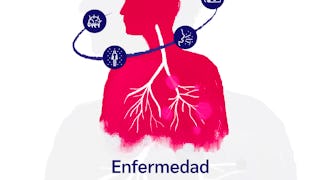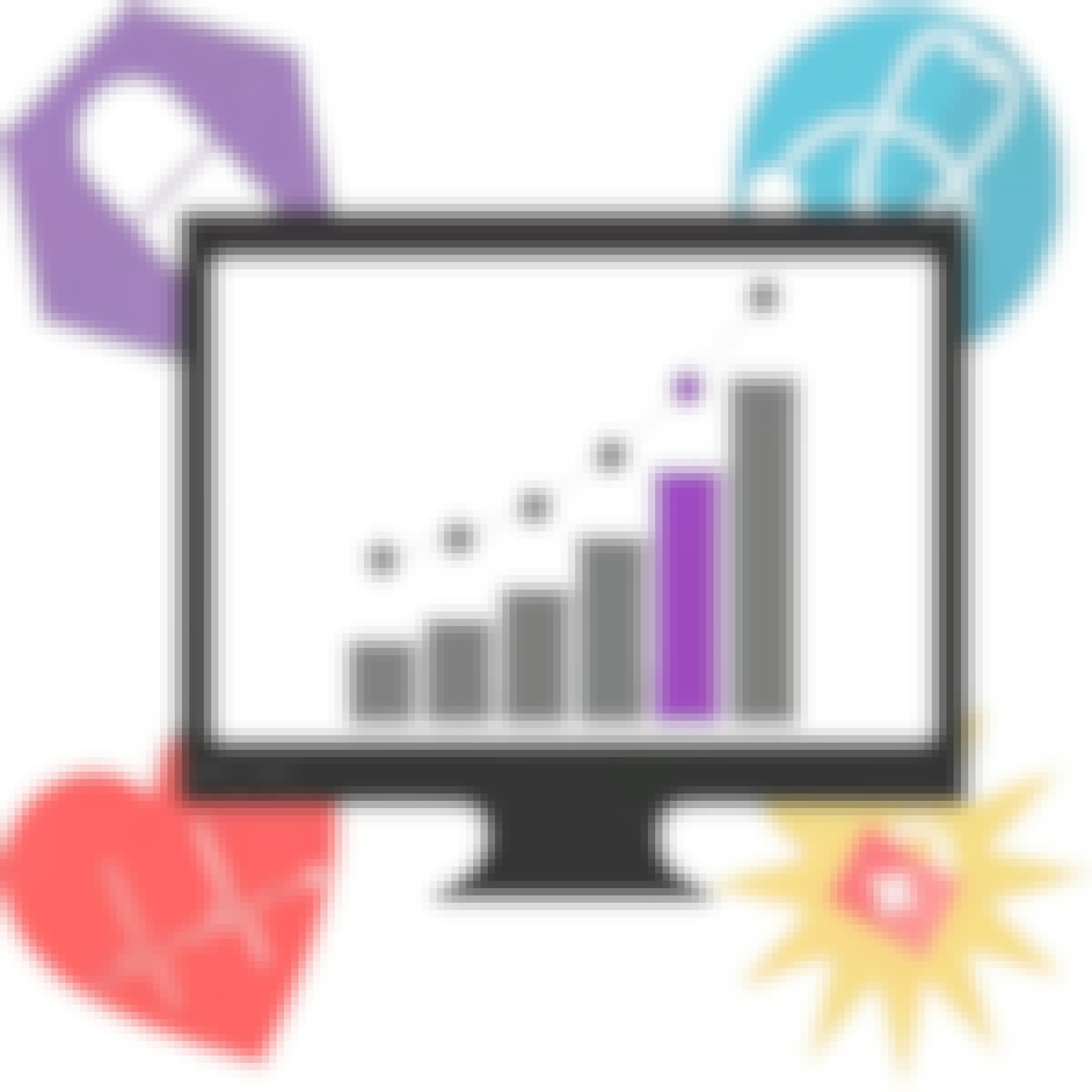- Browse
- Health Economics
Health Economics Courses
Health economics courses can help you learn cost-effectiveness analysis, health policy evaluation, and the economic impact of healthcare interventions. You can build skills in data analysis, budget forecasting, and understanding healthcare financing models. Many courses introduce tools like statistical software for analyzing health data and economic modeling techniques to assess the efficiency of healthcare programs.
Popular Health Economics Courses and Certifications
 Status: Free TrialFree TrialA
Status: Free TrialFree TrialAAAPC
Skills you'll gain: Denial Management, Claims Processing, Medical Billing, Insurance Policies, Utilization Management, Billing & Invoicing, Insurance, Medicare, Revenue Cycle Management, Workers Compensation, Medicaid, Healthcare Industry Knowledge, Regulatory Compliance
4.8·Rating, 4.8 out of 5 stars13 reviewsBeginner · Course · 1 - 3 Months
 Status: PreviewPreviewU
Status: PreviewPreviewUUniversity of California San Diego
Skills you'll gain: Storytelling, Oral Expression, Public Speaking, Media and Communications, Persuasive Communication, Communication, Interviewing Skills, Interpersonal Communications, Content Creation, Writing
4.7·Rating, 4.7 out of 5 stars20 reviewsBeginner · Course · 3 - 6 Months
 Status: PreviewPreviewU
Status: PreviewPreviewUUniversidad de los Andes
Skills you'll gain: Chronic Diseases, Pulmonology, Patient Education And Counseling, Patient Evaluation, Respiratory Care, Pulmonary Function Testing, Respiration, Internal Medicine, Diagnostic Tests, Clinical Assessment, Public Health and Disease Prevention, Medication Therapy Management, Preventative Care, Patient Treatment, Pharmacotherapy
4.8·Rating, 4.8 out of 5 stars19 reviewsIntermediate · Course · 1 - 3 Months
 Status: Free TrialFree Trial
Status: Free TrialFree TrialSkills you'll gain: Pain Management, Patient Communication, Patient Assistance, Clinical Nutrition, Nutrition and Diet, Patient Education and Support, Patient Evaluation, Direct Patient Care, Health Assessment, Nutrition Education, Communication, Clinical Experience, Health Care, Healthcare Ethics, Patient Safety, Health And Safety Standards, Healthcare Industry Knowledge, Critical Thinking and Problem Solving, Decision Making, Critical Thinking
4.9·Rating, 4.9 out of 5 stars7 reviewsBeginner · Course · 1 - 4 Weeks
 Status: FreeFreeJ
Status: FreeFreeJJohns Hopkins University
Skills you'll gain: Health Policy, Health Equity, Health Disparities, Epidemiology, Data Quality, Public Health, Health Assessment, Social Determinants Of Health, Data-Driven Decision-Making, Data Analysis, Data Collection, Data Presentation, Data Visualization Software
4.7·Rating, 4.7 out of 5 stars72 reviewsBeginner · Course · 1 - 4 Weeks
 Status: Free TrialFree TrialN
Status: Free TrialFree TrialNNovartis
Skills you'll gain: Drug Development, Pharmaceuticals, Pre-Clinical Development, Pharmacology, Laboratory Testing, Biochemical Assays, Clinical Research, Pharmaceutical Terminology, Verification And Validation
4.9·Rating, 4.9 out of 5 stars35 reviewsIntermediate · Course · 1 - 4 Weeks
 Status: Free TrialFree TrialN
Status: Free TrialFree TrialNNovartis
Skills you'll gain: Pre-Clinical Development, Patient Safety, Pharmacology, Drug Development, Clinical Research, Clinical Trials, Safety Standards, Pharmaceuticals, Drug Interaction, Risk Analysis
4.9·Rating, 4.9 out of 5 stars33 reviewsIntermediate · Course · 1 - 4 Weeks
 Status: Free TrialFree TrialU
Status: Free TrialFree TrialUUniversitat Autònoma de Barcelona
Skills you'll gain: Performance Appraisal, Recruitment, Training and Development, Employee Onboarding, Employee Training, Talent Acquisition, Workforce Development, Human Resources, Business Ethics, Negotiation, Employee Performance Management, Adaptability, Conflict Management, Organizational Development, Organizational Structure, Qualitative Research, Organizational Leadership, Leadership, Decision Making, Team Performance Management
4.8·Rating, 4.8 out of 5 stars45 reviewsBeginner · Specialization · 3 - 6 Months
 Status: Free TrialFree TrialU
Status: Free TrialFree TrialUUniversity of Colorado System
Skills you'll gain: Predictive Modeling, Clinical Data Management, Intensive Care Unit, Risk Modeling, Clinical Practices, Patient Evaluation, Decision Support Systems, Applied Machine Learning, Health Informatics, Model Evaluation, Qualitative Research, Data Analysis, Model Deployment
Intermediate · Course · 1 - 3 Months
 Status: PreviewPreview
Status: PreviewPreviewSkills you'll gain: Patient Communication, Patient Education And Counseling, Nursing Process, Clinical Assessment, Basic Nursing Skills, Health Assessment, Patient Safety, Care Management, Patient-centered Care, Communication, Infection Control, Prioritization, Collaboration, Project Documentation
Beginner · Course · 1 - 4 Weeks
 Status: PreviewPreviewU
Status: PreviewPreviewUUniversity of California San Diego
Skills you'll gain: Patient Communication, Compassion, Patient-centered Care, Empathy, Interpersonal Communications, Active Listening, Communication, Emotional Intelligence, Cultural Diversity, Self-Awareness
5·Rating, 5 out of 5 stars6 reviewsBeginner · Course · 1 - 3 Months
 Status: PreviewPreviewN
Status: PreviewPreviewNNational Taiwan University
Skills you'll gain: Nephrology, Dialysis, Critical Care, Infectious Diseases, Epidemiology, Medical Equipment and Technology, Chronic Diseases, Public Health, Health Care, Preventative Care, Surgery, Immunology, Health Policy
Intermediate · Course · 1 - 3 Months
Searches related to health economics
In summary, here are 10 of our most popular health economics courses
- Insurance Specifics: AAPC
- Communicating with the Public: University of California San Diego
- Enfermedad respiratoria crónica. Asma - EPOC: Universidad de los Andes
- Comfort & Care: Pain, Nutrition, Hydration Assessments: Immersify
- Datos para Avanzar en la Salud Poblacional: Johns Hopkins University
- Targets, Assays & Screening: Novartis
- Preclinical Safety: Novartis
- Organizaciones y recursos humanos en el siglo XXI: Universitat Autònoma de Barcelona
- Predictive Modeling and Transforming Clinical Practice: University of Colorado System
- Nursing Fundamentals: Skills for Patient Care Excellence: Coursera










